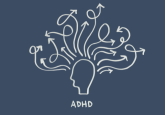The new VR game that can diagnose ADHD

The potential of a new virtual reality game, termed EPELI, to diagnose ADHD and other neurological disorders has been revealed in a recent study published in Nature Scientific Reports.
A collaboration of researchers from Aalto University (Espoo, Finland), the University of Helsinki (Helsinki, Finland) and Abo Åkademi University (Turku, Finland) have recently designed a novel virtual reality game termed EPELI that could potentially be implemented in ADHD diagnosis, providing the first objective measurement test of its kind. Through tracking eye movement, control clicking frequency and task performance in the game, researchers were able to identify differences in the reactions of children with ADHD compared to children without ADHD.
You may have heard of the words ‘virtual reality’ but maybe only in the context of entertainment or escapism from your repetitive day job. A three-dimensional immersive experience where your vision is bombarded with shapes and colors, virtual reality is a stimulation of an artificial world utilizing eye and head movement trackers to coordinate a user’s physical movement in a virtual environment.
Virtual reality can enable a user to look around, move about, and even interact with features in their virtual surroundings. But, aside from being able to escape the natural world and whisk away to a whimsical fantasy utopia, or the occasional educational application, what place does virtual reality hold in healthcare?
Attention deficit hyperactivity disorder, or ADHD, is a common neurodevelopmental disorder characterized by inattentiveness, hyperactivity and impulsiveness. Although ADHD affects approximately 5% of the global population, it is relatively underdiagnosed and overlooked in most countries, particularly in girls, older children and adults. The exact cause of ADHD is unknown, however, there are many differences in the brain anatomy and function of people with ADHD, such as lower activity levels in prefrontal regions and imbalances in the neurotransmitters norepinephrine and dopamine.
Early diagnosis and treatment of ADHD are vital to improve quality of life and reduce long-term consequences that may run into adulthood. As the majority of diagnostic assessments are self-reported; ADHD diagnosis relies on questionnaires, interviews and observations, which can be ambiguous and fairly unreliable due to subjectivity. Objective measures of symptoms are few and far between.
Now researchers have created a new objective assessment for ADHD diagnosis, termed EPELI. In this study, 37 children diagnosed with ADHD and a control group of 36 children engaged in a virtual reality game that stimulates situations from everyday life, such as eating food or brushing their teeth. The children had to remember the different tasks whilst managing distractions in the environment. While the children played EPELI and an additional game ‘Shoot the Target’, which involved shooting objects in the virtual environment using eye motion, their task performance, eye movements and control clicks were recorded.
Task performance efficiency was associated with everyday functioning, which children suffering from ADHD often struggle with. Liya Merzon, a member of the team at Aalto University, commented: “We tracked children’s natural eye movements as they performed different tasks in a virtual reality game, and this proved to be an effective way of detecting ADHD symptoms. The ADHD children’s gaze paused longer on different objects in the environment, and their gaze jumped faster and more often from one spot to another. This might indicate a delay in visual system development and poorer information processing than other children.”
Pediatric neuropsychologists at Helsinki University Hospital who took part in the pilot study and answered feedback surveys reported that EPELI was beneficial and a useful complementary tool.
A considerable advantage of this game is the motivation to complete it, meaning this technology can not only objectively analyze ADHD symptoms, but children also enjoy the assessment more than standard behavioral tests. Additionally, virtual reality possesses strengths over both laboratory and field studies, which respectively suffer from the disadvantage of being in a clinical environment and lack of control over extraneous variables. Virtual reality on the other hand, allows the careful control of both the stimuli and environment while gathering information about behavior in a somewhat natural environment.
In the future, EPELI could be used for ADHD therapy and rehabilitation as well as diagnosis, and with some adjustments, may also competently assess other neurological disorders such as autism. Moreover, EPELI could be utilized to analyze brain trauma, organization difficulties, language problems and also memory degradation in Alzheimer’s and Parkinson’s diseases. The applications for virtual reality seem endless.





